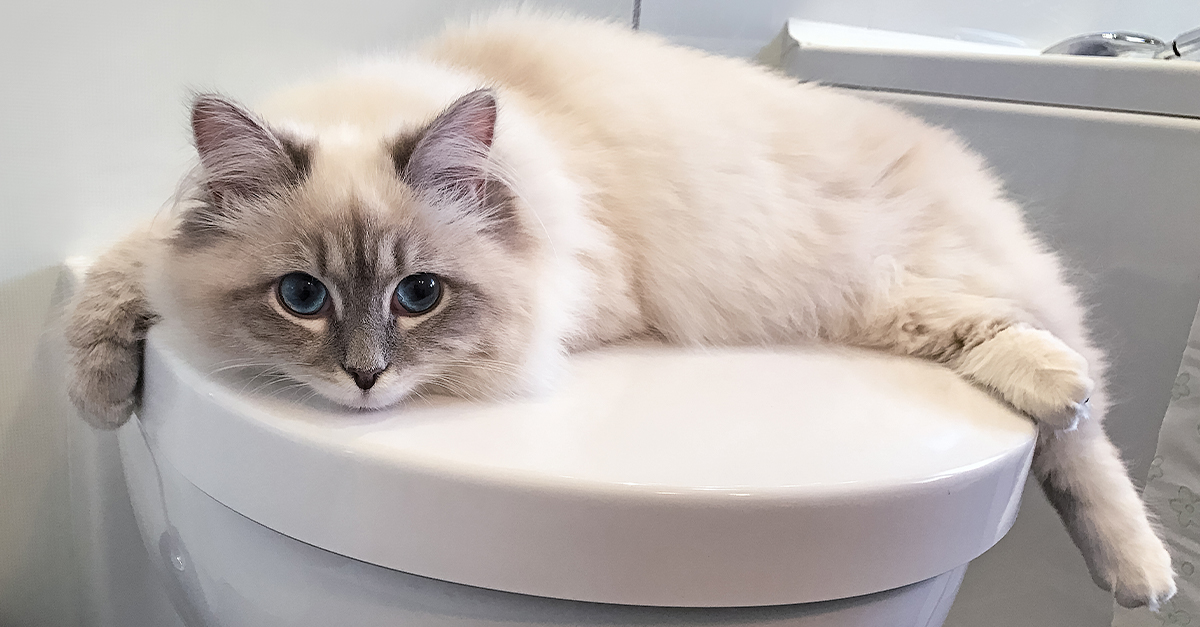Dangers of Flushing Cat Poop Down Your Toilet - Avoid Potential Issues
Dangers of Flushing Cat Poop Down Your Toilet - Avoid Potential Issues
Blog Article
Here in the next paragraph you'll find a bunch of dependable ideas on the subject of Don’t flush cat feces down the toilet.

Intro
As pet cat owners, it's necessary to bear in mind exactly how we dispose of our feline buddies' waste. While it may appear practical to flush cat poop down the commode, this technique can have harmful consequences for both the setting and human health and wellness.
Alternatives to Flushing
Fortunately, there are more secure and much more responsible ways to take care of feline poop. Consider the complying with options:
1. Scoop and Dispose in Trash
One of the most usual technique of getting rid of cat poop is to scoop it into an eco-friendly bag and toss it in the trash. Make sure to use a specialized litter inside story and get rid of the waste immediately.
2. Use Biodegradable Litter
Select biodegradable feline trash made from products such as corn or wheat. These trashes are eco-friendly and can be safely thrown away in the trash.
3. Bury in the Yard
If you have a backyard, consider burying pet cat waste in a designated area away from veggie gardens and water sources. Make certain to dig deep enough to prevent contamination of groundwater.
4. Set Up a Pet Waste Disposal System
Buy an animal garbage disposal system especially designed for feline waste. These systems use enzymes to break down the waste, decreasing smell and ecological impact.
Health and wellness Risks
Along with ecological problems, flushing cat waste can likewise present wellness risks to people. Feline feces might have Toxoplasma gondii, a parasite that can cause toxoplasmosis-- a potentially serious health problem, particularly for expectant women and individuals with damaged immune systems.
Environmental Impact
Flushing cat poop introduces hazardous microorganisms and parasites into the supply of water, presenting a considerable danger to marine ecosystems. These contaminants can adversely influence aquatic life and concession water top quality.
Verdict
Accountable family pet ownership prolongs beyond offering food and shelter-- it also involves proper waste monitoring. By avoiding purging feline poop down the bathroom and opting for alternative disposal approaches, we can decrease our ecological footprint and protect human health.
Why Can’t I Flush Cat Poop?
It Spreads a Parasite
Cats are frequently infected with a parasite called toxoplasma gondii. The parasite causes an infection called toxoplasmosis. It is usually harmless to cats. The parasite only uses cat poop as a host for its eggs. Otherwise, the cat’s immune system usually keeps the infection at low enough levels to maintain its own health. But it does not stop the develop of eggs. These eggs are tiny and surprisingly tough. They may survive for a year before they begin to grow. But that’s the problem.
Our wastewater system is not designed to deal with toxoplasmosis eggs. Instead, most eggs will flush from your toilet into sewers and wastewater management plants. After the sewage is treated for many other harmful things in it, it is typically released into local rivers, lakes, or oceans. Here, the toxoplasmosis eggs can find new hosts, including starfish, crabs, otters, and many other wildlife. For many, this is a significant risk to their health. Toxoplasmosis can also end up infecting water sources that are important for agriculture, which means our deer, pigs, and sheep can get infected too.
Is There Risk to Humans?
There can be a risk to human life from flushing cat poop down the toilet. If you do so, the parasites from your cat’s poop can end up in shellfish, game animals, or livestock. If this meat is then served raw or undercooked, the people who eat it can get sick.
In fact, according to the CDC, 40 million people in the United States are infected with toxoplasma gondii. They get it from exposure to infected seafood, or from some kind of cat poop contamination, like drinking from a stream that is contaminated or touching anything that has come into contact with cat poop. That includes just cleaning a cat litter box.
Most people who get infected with these parasites will not develop any symptoms. However, for pregnant women or for those with compromised immune systems, the parasite can cause severe health problems.
How to Handle Cat Poop
The best way to handle cat poop is actually to clean the box more often. The eggs that the parasite sheds will not become active until one to five days after the cat poops. That means that if you clean daily, you’re much less likely to come into direct contact with infectious eggs.
That said, always dispose of cat poop in the garbage and not down the toilet. Wash your hands before and after you clean the litter box, and bring the bag of poop right outside to your garbage bins.
https://trenchlesssolutionsusa.com/why-cant-i-flush-cat-poop/

Do you like reading about Don’t flush cat feces down the toilet? Try to leave a remark down below. We would be glad to know your reactions about this write up. Hoping to see you back again in the future. Please set aside a second to share this blog entry if you enjoyed it. I enjoy reading our article about How to Dispose of Cat Poop and Litter Without Plastic Bags.
Click Here Report this page